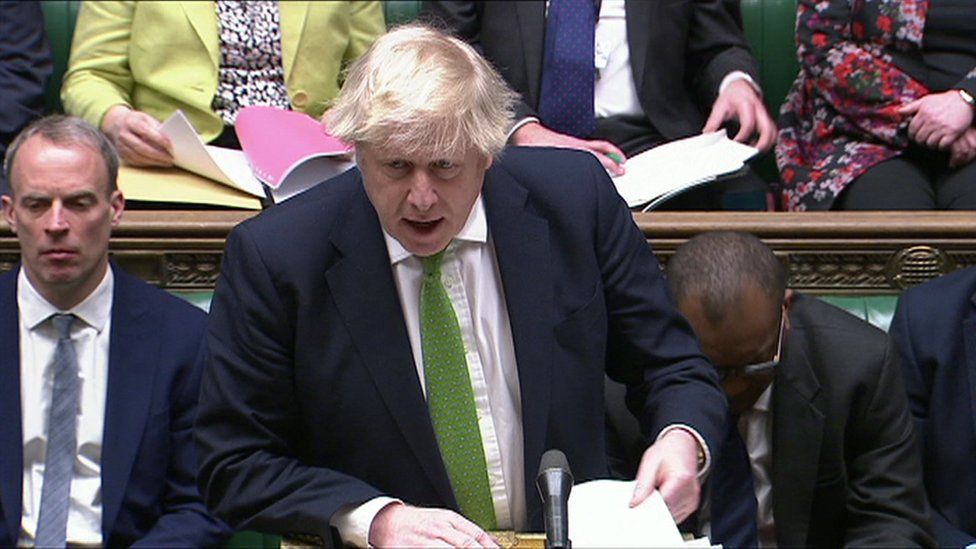The gas pipeline between Russia and Germany cost €10bn (£8.4bn) and was completed last September.
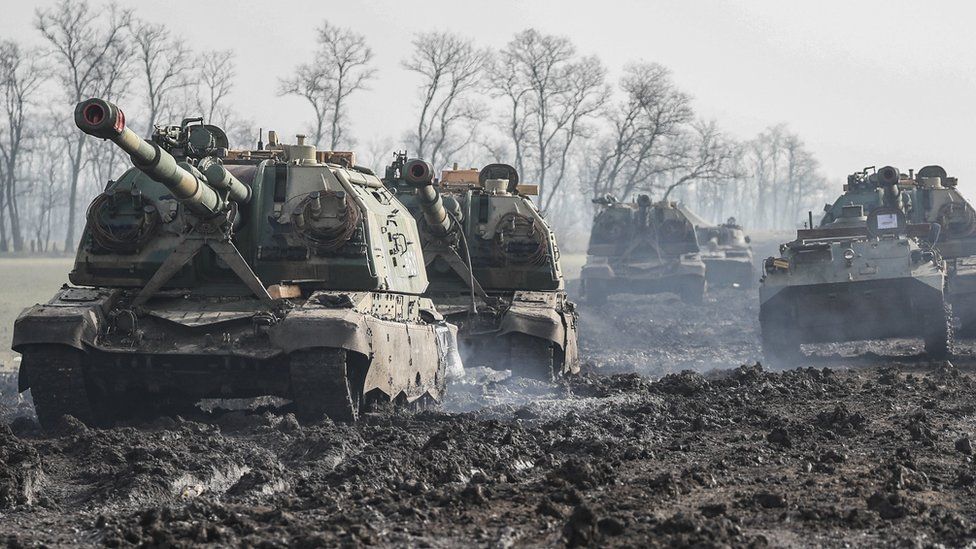
Image source, EPA
Germany has put a stop to a key Russian gas pipeline following Vladimir Putin’s orders to send troops into Ukraine.
On Monday the Russian president recognised two breakaway Ukrainian regions as independent states and ordered Russian troops to deploy to both.
Western nations largely see the action as a pretext for a wider invasion.
In response, Germany halted approval of the Nord Stream 2 pipeline and other Western nations issued sanctions.
Sanctions can take various forms – the term can refer to many actions used by one country to harm another, usually to deter aggressive actions or breaches of international law.
The Nord Stream 2 pipeline has been supported by Germany despite opposition from countries such as the US, UK, Poland and Ukraine. It cost €10bn (£8.4bn), with the funding split between Russian and Western energy companies.
But following Mr Putin’s order to send troops to the rebel-held Ukrainian regions of Donetsk and Luhansk, Germany announced it was suspending the process of giving the pipeline between it and Russia an operating licence – effectively stopping the project until further notice.
- LIVE: Latest updates on Ukraine
- BACKGROUND: The Nord Stream 2 pipeline and the Ukraine crisis
- EXPLAINER: What sanctions are being imposed on Russia?
The move is notable as Russia supplies Europe with about 40% of its gas, sourced from vast supplies in Russia’s east.
“This is a morally, politically and practically correct step in the current circumstances,” Ukrainian Foreign Minister Dmytro Kuleba wrote, welcoming the decision. “True leadership means tough decisions in difficult times. Germany’s move proves just that.”
It is among a number of measures taken by Western powers following Mr Putin’s announcement.
This video can not be played
To play this video you need to enable JavaScript in your browser.
The United States banned American people and companies from conducting any trade or investment in the rebel-held regions, and promised more action to follow.
The United Kingdom announced sanctions against five Russian banks and three Russian business figures, saying their UK assets will be frozen and they will be banned from the country.
The EU also unveiled its first wave of measures on Tuesday, including:
- Sanctions targeting anyone involved in the decision, which could include all 351 members of Russia’s parliament who voted for it
- Russian banks which finance military and other operations in the breakaway regions
- Blocking Russian government access to the EU financial market
- A ban on trade from the two rebel-held regions with the EU
But such measures need to be approved by all 27 EU member states before they are put into force.
The Western sanctions announced on Tuesday fall far short of what had been threatened in the event of invasion. There had been speculation that Russia could have faced being cut off from the global banking system, denied access to the dollar, or even face import or export restrictions.
The White House made clear that its initial sanctions “are separate from and would be in addition to the swift and severe economic measures” it has prepared “should Russia further invade Ukraine”. And the UK’s Defence Minister Ben Wallace said there were plenty of more sanctions “in the tank” to be used if needed.
Poland’s Prime Minister Mateusz Morawiecki welcomed the blocking of Nord Stream 2 – which his country has long opposed – but said he expects much more. He had earlier said that sanctions must “be sufficiently painful and prevent Vladimir Putin from taking additional steps”.
Poland’s President Andrzej Duda also called for “serious sanctions”.
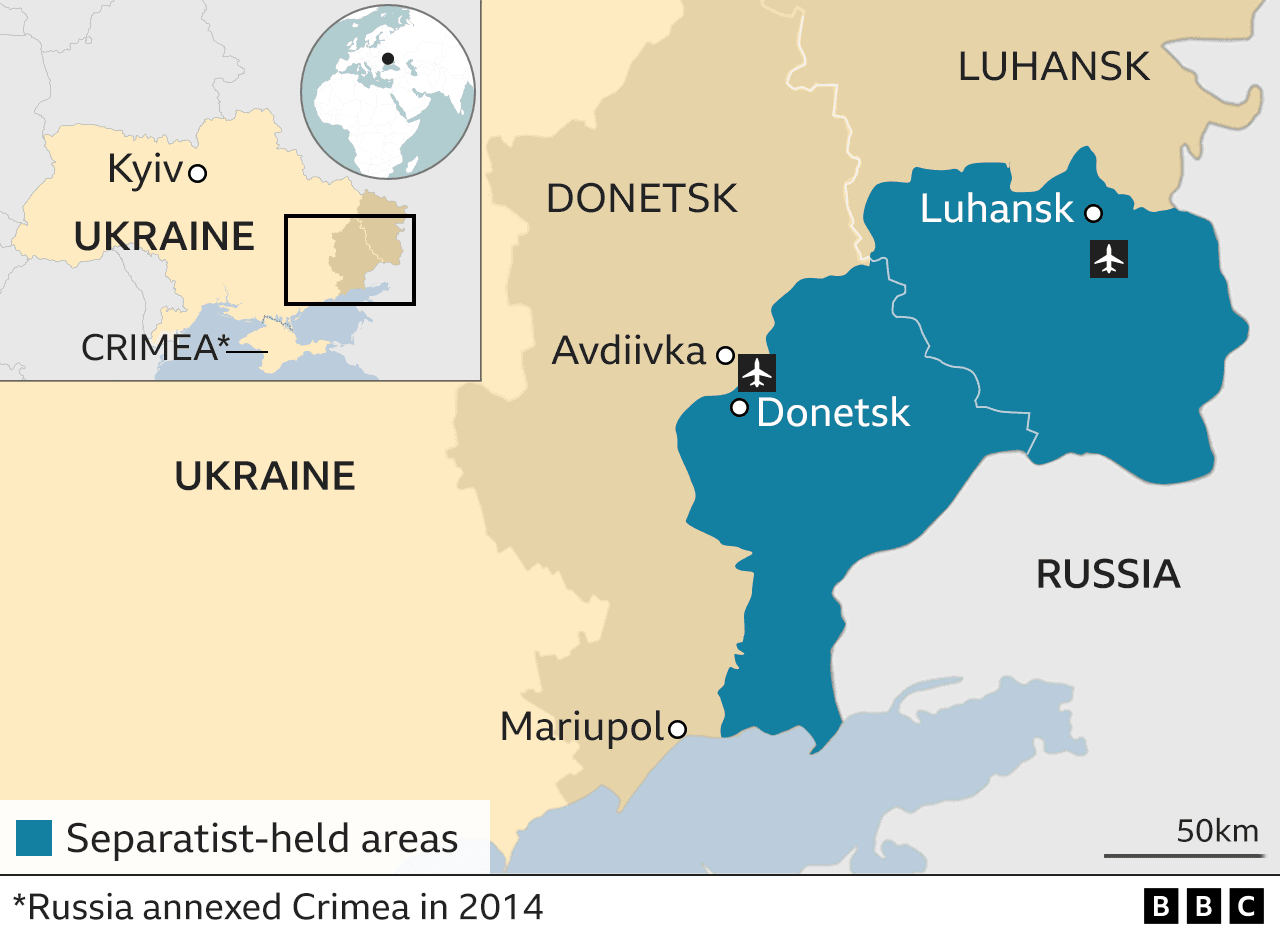
In the UK, following Prime Minister Boris Johnson’s announcement of initial sanctions, senior Conservative MP Iain Duncan Smith said Russia needs to be hit with sanctions “hard and now” – and asked if the UK was prepared to take further action.
In response, the prime minister said: “We are hitting [Russia] hard now and will hit them harder in the future.”
“We will continue to punish Russia,” the PM added.
There has as yet been no evidence of Russian troops crossing the border into the rebel-held areas of east Ukraine, despite Mr Putin’s order to conduct what he calls peacekeeping functions.
Russian Deputy Foreign Minister Andrei Rudenko told the AFP news agency that Russia was not sending troops in “for now”.
“No one is planning to send anything anywhere. If there is a threat, then we will provide assistance in accordance with the ratified treaties,” he said.
-
- 39 minutes ago
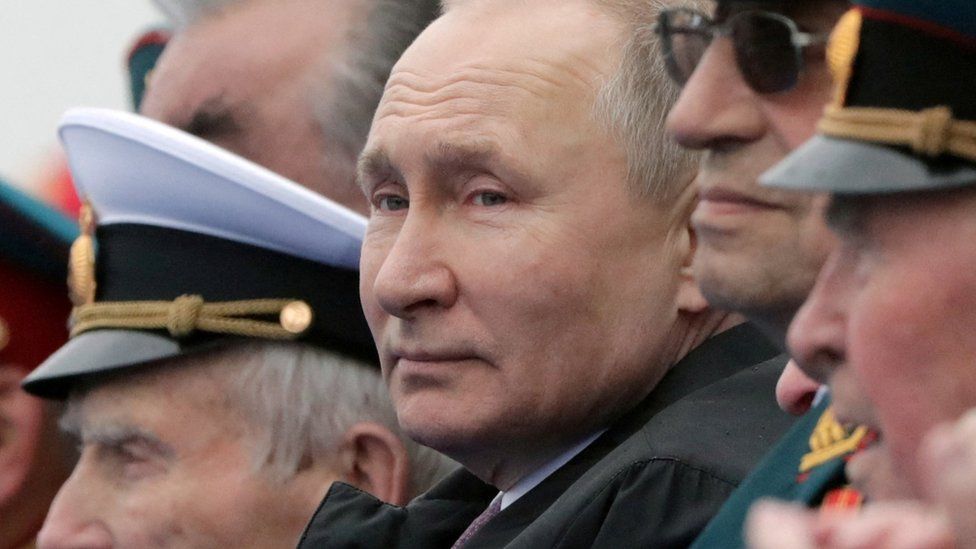
- 19 hours ago
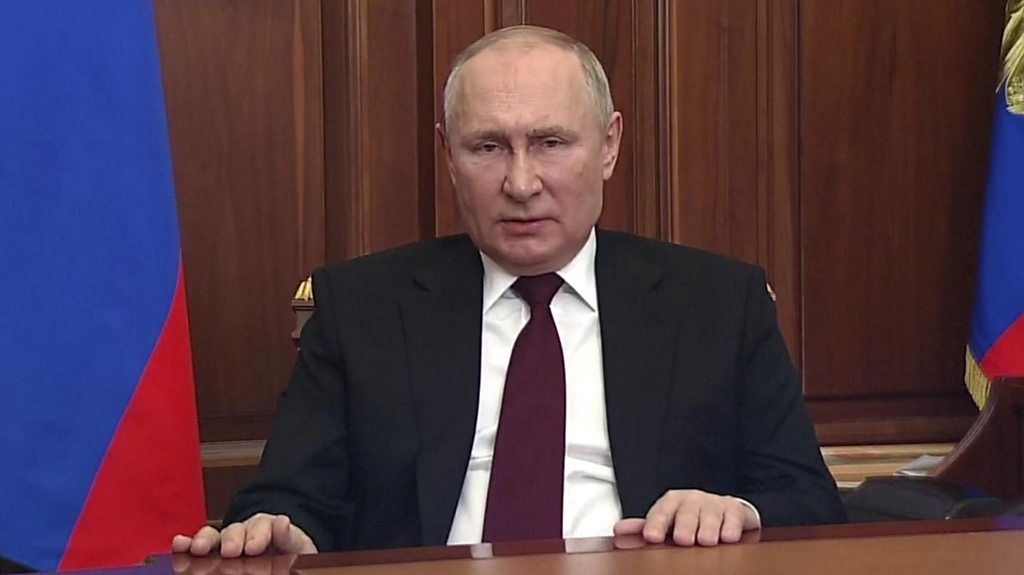
- 36 minutes ago
